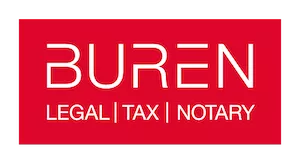- within Corporate/Commercial Law topic(s)
- in United States
- in United States
- within Transport and Technology topic(s)
- with readers working within the Consumer Industries industries
Last week, the Dutch government launched a public consultation regarding the current lucrative interest regime. This article provides an overview of the rationale behind the public consultation, the existing lucrative interest regime, key insights from the report published by the Ministry of Finance, and important key take aways for private equity managers and their carried interest participation moving forward.
Background
On April 4, 2024, the Dutch Lower House of Parliament adopted a motion with broad support, requesting the government to amend the lucrative interest regime available to private equity managers. The motion calls for carried interest to be taxed at progressive rates under box 1 and requests the government to assess whether such taxation aligns with tax treaties, engaging in discussions with treaty partners where necessary. Following the adoption of the motion, the Ministry of Finance prepared a report outlining the current state of the lucrative interest regime and proposing two alternative solutions (the Report). The Report was submitted to the Lower House on February 13, 2025. The public consultation, which remains open until April 2, 2025, seeks input on these two alternatives. Public consultations serve as a means for citizens, businesses, and civil society organizations to engage with legislative proposals, enhancing transparency and contributing to the quality of legislation.
Current Lucrative Interest Regime
The lucrative interest regime applies to (among others) fund managers in private equity and management participation structures who receive capital assets as part of their compensation. These assets often yield substantial returns, such as carried interest. The regime specifically targets advantages that are disproportionate to the initial investment and associated financial risk. Generally, lucrative interest is taxed in box 1 (income from work and home ownership) as employment income or other income requiring active involvement, subject to a progressive tax rate up to 49.5%. However, in practice, lucrative interest participations are frequently structured to be in scope of box 2 (income from substantial interest). This typically involves – in short - the fund manager contributing his lucrative interest participations in a personal or collective warehousing company in which such fund manager holds a substantial interest, qualifying it as an indirect lucrative interest. Income realized by the personal or collective warehousing company is not subject to corporate income tax under the participation exemption rules. If at least 95% of the lucrative interest income is distributed to the fund manager holding the substantial interest, taxation occurs under box 2 at rates of 24.5% for income up to EUR 67,804 and 31% for amounts exceeding this threshold—considerably lower than the 49.5% box 1 rate.
The Report
The Report provides background on the taxation landscape before the introduction of the lucrative interest regime in 2009 and discusses the rationale for maintaining box 2 taxation, such as preserving a competitive business environment. It presents two alternative approaches to reforming the current regime: integration into Dutch wage tax regulations, under this model, income classified as lucrative interest would no longer be taxable under box 2. If an employment relationship exists, wage tax would be levied at the time the benefit is received (pay-as-you-earn principle). If no employment relationship exists, taxation would still occur under box 1 as income from other activities, similar to the current system. This approach would necessitate a fundamental revision of the lucrative interest regime and require significant legislative and administrative resources. The other alternative aims to increase the tax rate in box 2 in case of a lucrative interest This alternative involves raising the effective tax rate under box 2 specifically for taxpayers with lucrative interest participations. A short-term option includes expanding the tax base for individuals applying the substantial interest regime. The effective tax rate would be set between the top box 1 rate (49.5%) and the top box 2 rate (31% in 2025). The Report advises against implementing any changes to the current lucrative interest regime before the new box 3 system takes effect, expected on January 1 2028.
Key Takeaways
The adopted motion reflects a growing interest in a higher taxation of carried interest for private equity managers in the political landscape. The public consultation remains open until April 2, 2025, after which legislative steps may be taken. The Report recommends however deferring any changes to the current lucrative interest regime until the implementation of the new box 3 system, likely on January 1, 2028.
The content of this article is intended to provide a general guide to the subject matter. Specialist advice should be sought about your specific circumstances.



